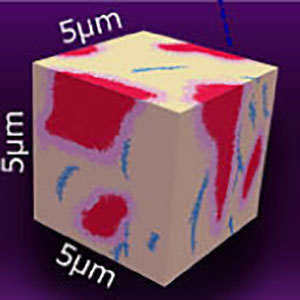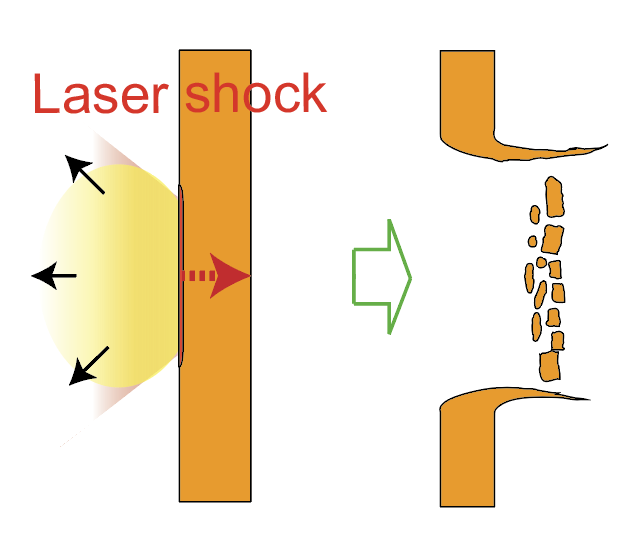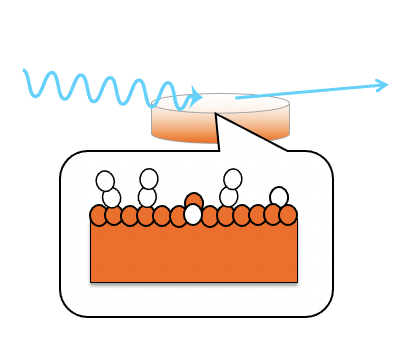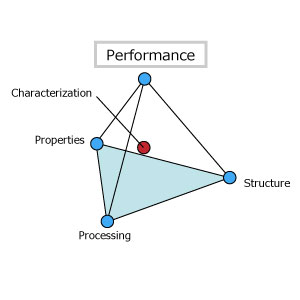How do materials fracture at nano-scale ?
Reconstructed 3D images of crack initiation inside CFRP (carbon-fiber reinforced plastics) observed by nanoscopic X-CT installed at the beamline of PF-AR NW2. Black: carbon fibers and red: cracks (plastics are not shown).
Feb. 19, 2022
Nanoscale fracture mechanism in CFRPs is still debated owing to the considerable difficulty in determining the three-dimensional mechanism of fracture using conventional techniques such as optical and/or electron mi- croscopy relying on side-surface- and fracture-surface-based observation. In this study, microscopic damages such as fiber/matrix debonding and microcracks under mixed-mode (mode I + II) loading are characterized in situ using nondestructive nanoscopic synchrotron radiation X-ray computed tomography (nanoscopic SR X-CT).

We need a new type pf approch to analyze the big data obtained by X-ray microscopy. We have carried out reseaches as one of the team: Materials Science Gr in "The data descriptive science project" (Grant-in-Aid for Transformative Research Areas (A) 22H05109) .
It's a new challenge to combine materials science and applied mathematics!

Heterogeneity
The heterogeneity in materials, such as microstructures, phase, and chemical states, are visualized using X-ray microscopy in 2D, 3D, 4D, ... 5D. Then we are trying to find ‘trigger sites’, where the key reactions dictate macroscopic properties.

Reaction dynamics
Dynamic observations have been carried out with a wide range in time-resolutions from ns to ms to in situ observation of various reactions.

Surface and inerface
New approaches using XAFS and other techniques have been developed to investigate surfaces, interfaces, and nano-clusters.

Materials Informatics
Materials Integration (MI) uses all scientific knowledge to help research and development of materials. A new approch using applied mathematics has been developed...
On-going national projects
| Name of projects (&LINK) | Members in KEK (*Leader in KEK) |
| The data-descriptive-science project (JST Grant-in-Aid for Transformative Research Areas) | *M. Kimura, Y. Niwa, D. Kido |
| Fatigue mechanism of CFRP
(JST-Mirai Program) | *M. Kimura, Y. Niwa, D. Kido |
| Electrochemical reduction of carbon dioxide using hydride-containing oxides (JST CREST) | *S. Nozawa |
| Strucutral visualization of photochemical reaction with time-resolved X-ray solution scattering
(JST Grant-in-Aid for Specially Promoted Research) | *S. Adachi, S. Nozawa |
| Electron Transfer Networks of Transition Metal Cluster Complexes for Catalytic Applications
(JST CREST) | *K. Kimijima, Y. Niwa |